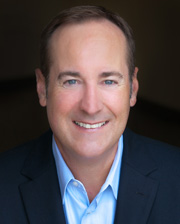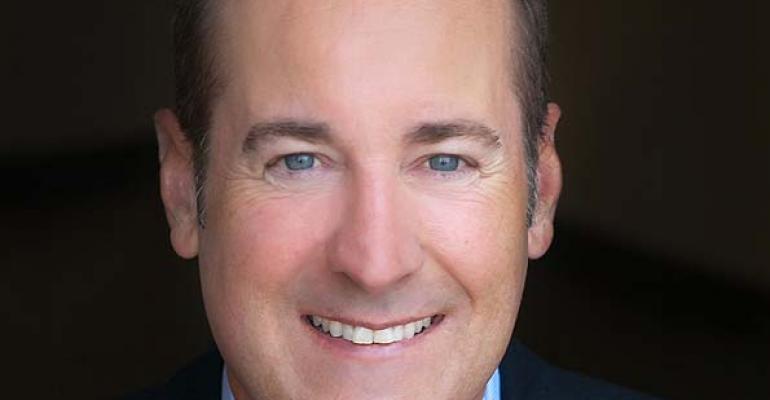 Start with why Several months ago, the team at ACCESS Destination Services embarked on a mission to better convey what we’re passionate about by redesigning our brand image and messaging. Based on the TED talk “Start with Why” by Simon Sinek, our partners and local team members participated in individual and group exercises that dug deep into the heart of not just what we do as a company, or even how we do it, but why we do it.
Start with why Several months ago, the team at ACCESS Destination Services embarked on a mission to better convey what we’re passionate about by redesigning our brand image and messaging. Based on the TED talk “Start with Why” by Simon Sinek, our partners and local team members participated in individual and group exercises that dug deep into the heart of not just what we do as a company, or even how we do it, but why we do it.
The collective results of these exercises were clear. Among all the services we provide, our passion and ultimate priority—our unique "why"—is to create inspiring, shared experiences for our clients. The process was so successful that we've developed a brand promise around it: "To inspire people through shared experiences."
I believe that members of the meetings and events industry can—and should—be much more than simply providers of things. We may offer buses, boats, bands and ballrooms, but we’re really in the business of creating shared experiences. Increasingly, our clients want more than just things; they want experiences, too. They want to share and to be inspired. In response, we strive to inspire them through shared experiences!
The power of shared experiences When we are fortunate to experience something incredible—perhaps a beautiful scene in nature or an amazing concert—our natural human response is to share it with others. We snap a photo or video and post it on Instagram or Facebook. We call or text a friend. When recounting the experience to others, weeks or months later, we say, “I wish you could have been there!”
We share experiences to make them more meaningful and memorable. Shared experiences enhance life and connect people at a deeper level. Social networking sites are successful because they offer an outlet for our innate desire to share experiences. Yet, snapping a photo of an awe-inspiring sunrise, or telling someone about it later, is not as fulfilling as enjoying that sunrise with others, in real time, as a shared experience. Similarly, I believe meetings and events are meant to be shared experiences. Understanding the importance and power of shared experiences drives our industry.
Experiences vs. things Some studies suggest that the human brain is hard-wired to appreciate experiences over material possessions. In another TED talk, “The Puzzle of Motivation,” author Daniel Pink describes a 1962 experiment by psychologist Sam Glucksberg that examined the effectiveness of various prizes at improving performance. Pink explains that people are motivated not by money—that is, not by “things”—but instead by the opportunity to exercise personal autonomy, to become better at tasks, and to be part of something larger than themselves. I believe that well-designed meetings and events can tap into these inner desires by providing inspirational shared experiences.
I know I'm not the first person to recognize the power of shared experiences. In fact, many of today’s social trends are based on shared experiences. Take running, for example. Running has evolved from a mostly individual activity into adrenaline-pumping, music-filled group events (i.e., “Rock ‘n’ Roll Marathon” or “Tuff Mudder") that are popping up all over the U.S.A. These are not just races—they are experiences. Similarly, music festivals such as Coachella are about much more than watching live music; they are about the caravan out to the desert, the group camping, the heat, the culture, even the massive crowds and long lines!
Why are so many people and industries increasingly recognizing the power of experiences versus material things?
Perhaps history has played a role. The pendulum has certainly swung away from the materialism of the 1980s and 1990s, when pop culture showcased extravagant wealth and material excess. During those decades, many Americans were infatuated with flashy cars, clothes, big houses and lots of “toys.” A whole generation of young, upwardly mobile adults chased the lifestyles of the rich and famous. Home values, stocks and paychecks seemed to only go one way: up! Of course, we all know what happened after that.
First the dot-com bubble burst. Then the mortgage and housing crisis swept the nation and, finally, the deepest recession since the Great Depression arrived. Suddenly, material things, including people’s homes, investments and retirement plans, lost their value. In the wake of “irrational exuberance,” Americans soon learned that material possessions are fragile and can be lost or diminished. My generation of 1960s-born Late Boomers was hit hard by these lessons.
In contrast, the millennial generation has had a vastly different experience. My three sons, born between 1993 and 1999, have grown up without exuberant materialism. They are coming of age in a time of relative austerity, geopolitical and social unrest, widespread military activity, terrorism, and loss that routinely fills the headlines. As a result, they have learned that material things are fragile and often fleeting. Millennials value that which can’t be taken away or lost easily. They gravitate towards what really matters in life: experiences, not things.
The bonus money you got last year is likely gone, but the memories from the vacation you took with that money will last a lifetime. Companies and organizations can award their top producers and members with an expensive watch, a new car, or a generous bonus, but none of these things stands the test of time when compared with a once-in-a-lifetime experience. A truly authentic, exceptional experience is more powerful than any material recognition—especially when shared.
Chris Lee, DMCP, is partner and CEO of ACCESS Destination Services, having begun his destination management career in the early 1980s working for ACCESS precursor California Leisure Consultants in San Diego and Los Angeles. He is a co-founder and past president of the Association of Destination Management Executives, a contributing author to “The Guide to Successful Destination Management,” and the 2006 Destination Management Professional of the Year honoree.






